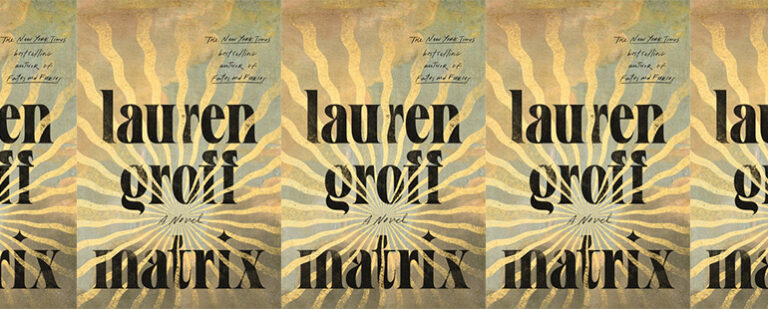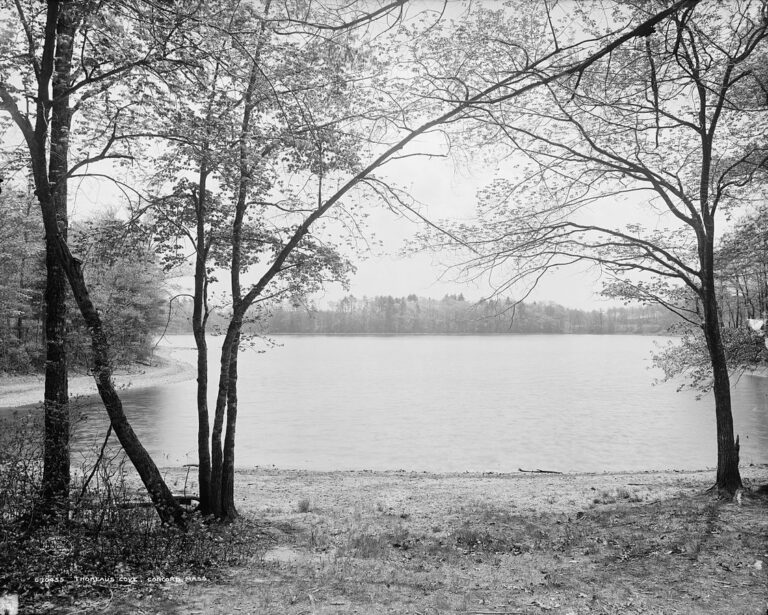Reading New Orleans Writers on Hurricanes and Home
I have lived through more tropical storms and hurricanes than I can count, having grown up in Miami and lived more than ten years in New Orleans. When the storms hit, I’ve always stayed, with my home, my family, my peoples. Evacuating is a privilege, yet it is not an easy decision either. You have to decide to leave behind your neighbors, your peoples, your city, your home. Traffic is bad, cars break down, hotel prices rise, and you worry about the friends and family and home you’ve left behind—those that didn’t have the same privilege—which keeps you up all night.
When Hurricane Ida struck New Orleans and large parts of coastal Louisiana on August 29th, the sixteenth anniversary of Hurricane Katrina, I was one of those privileged enough to be able to evacuate. One of the lucky ones with family outside of the city that I could stay with to ride out the aftermath of the storm, when the poor infrastructure and the ways the powerful have ripped off the people comes to light in the after storm sun. So I write this from Miami, my hometown, in my old bedroom where my partner sits on an air mattress. I write this from Miami, another city with a manmade expiration date. I write this as I read books I evacuated with, books that explore New Orleans, storms, home. I write this as someone who is not sure when his home will be ready for our return.
I read Maurice Ruffin’s article “Why We New Orleanians Keep Coming Back After Every Storm,” published in Time magazine. Ruffin writes about how he decides to leave, and how “in one timeline, I ride out Hurricane Ida. I stay home with my generator, candles, and fans. I read. I worry. My mother would be in her apartment on the other side of the Mississippi River. She would be out of power. The canal next to the boulevard leading to her apartment floods. I can’t check on her.” On the Friday morning before the storm hit, Ida strengthened from a Category 2 to a 3, with the possibility of a Category 4 raised, as it headed towards New Orleans and the rest of Louisiana. My partner had the good luck of being out of town, but the bad luck to be mid-drive home from her family’s house in the northeast. When talking to her about whether I should leave or not, I was stuck on the timeline where I could maybe save our home, save some stuff, like my father did during Hurricane Andrew when we bunkered down and rode out the storm, since we couldn’t evacuate. I was stuck on the timeline where I could help my neighbors, like how our neighbors broke into our house after Andrew to let us out, since trees had flown into our security bars during the storm. I thought of how all my hurricane knowledge could help my peoples, my adopted city, if something were to go down. My partner could only see a timeline where something bad happened, and she couldn’t reach me, and everything fell apart—for her, for us, for our home. So I acquiesced. I left.
Ruffin writes “The hardest part is deciding what to leave behind. I’ll need money and clothes, but not the gorgeous red blues guitar hanging on the wall. The guitar was a present.” I had never had to face that decision in a storm before. My bookshelf, my prized possession, couldn’t be packed up easily. My guitar, which I bought with my best friend as a teenager, didn’t make practical sense to pack into my Prius. I think there is some inherited trauma for me about leaving a home during a big event and not knowing when I’d be able to come back. Pops was a child exile from Cuba who thought he’d go back to his home after thirty days of being in Miami, but he still has never been back. I looked at the home I share with my partner, I looked at New Orleans, I looked at all the people and places I’ve loved, that have helped make me who I am today, and told myself it wouldn’t be another “Thirty Days,” that I’d be back, and it, and the people I love, would be here when I returned.
I read Mona Lisa Saloy’s Second Line Home: New Orleans Poems (2014). Saloy is a 7th Ward poet, a neighborhood I used to live in for years with some adopted family. I read her poem “Hurricane Days,” which goes: “Between thunderclaps that / Echo wars of the past & / Inner wars of the present . . . Thundershowers like bombs of water falling / We give thanks for such / Reminders, what’s important / Being here.” I read those lines and remember Andrew, how our barrel roof tiles cracked like gunfire all night. I think about how I knew that once Ida had passed, I had to go back. To check on our home, to check on my sister’s home, to check on our peoples and their homes too. In “Missing in 2005: New Orleans Neighborhood Necessities,” Saloy writes, “schooled or street taught, the past sticks to us like sugar on beignets,” and I think about my own hurricane experiences. How during a later storm that flooded our hood, a neighbor rowed down our street in a canoe with a cowbell, and how that made me laugh, how it calmed me. I think of how I need to go back to New Orleans to be at least a little bit of that canoe-and-cowbell-Cuban-American for my peoples. I need to calm us, to make us laugh.
The poem continues, “Social Aid and Pleasure Clubs parade and hire bands to / pour music into every street; sidewalk audiences blossom and bloom / while / Dancing behind step parades of Second Line bands. / Such training ground is free flowing, like the humid air, / Heavy with humidity, heart, sweat, and elbow grease.” I read how Mutual Aid groups are doing so much more than the government even pretends to do. I read Instagram posts where New Orleans’s mayor, LaToya Cantrell, posts threats about arresting looters before posting about aid, while the Army Reserve protects spoiling food at Whole Foods from the hungry.
I pick up I Am New Orleans: 36 Poets revisit Marcus Christian’s definitive poem, edited by Kalamu ya Salaam (2020). I flip to A Scribe Called Quess’s poem “Comfort Food” and read the lines “how much comfort you’ve always found in this town’s food / no matter how bad the indigestion” and think about how you don’t even have to have blood family here to eat good; if you make a home here, your New Orleans family will treat you right. I think of how the pandemic has made it harder to see people, to eat good in New Orleans, to feel that home. I thought of that when I dropped gasoline and dog food off to a dear friend of mine. I played with his dogs and had him take pictures so my partner knew I was doing all right. I thought of that when I dropped a battery-powered fan off to a friend I hadn’t seen in way too long, and how she refused to let me leave without packing me some good food, including a couple of boudin sandwiches that saved me on my two-day trip out of the city. How much love and home was in that sandwich.
But the poem, the thoughts of food, also remind me of clearing out my sister’s fridge, and my own fridge. About how after the power went out so much of the freezer food had melted and seeped and leaked out of packets and boxes. How it had all accumulated in puddles of waste in the middle of the fridge. I think of how the pandemic has made it harder to see people, to eat good in New Orleans. I thought of that as I threw away all the good food I had in my freezer, food I’d bought for my partner’s arrival, so I could welcome her home with home-cooked meals. I think of how a fridge isn’t a fridge and a kitchen isn’t a kitchen without food or a chef to cook. I think, What is a home, without good food?
After I left, I asked myself, When would we be off the road, and back home? And with worsening storms and local, state, and federal governments unwilling to adapt our infrastructure, I wondered: Is the road going to keep being more and more a part of home, for more and more of us?
I read Kalamu ya Salaam’s “Beneath the Bridge: (A 2006 eulogy for North Claiborne Avenue from Canal Street down to Elysian Fields),” about Mardi Gras Indians’ “colorful vows to never bow down” and how “barbershops and hair salons hosted weekly / informal town hall meetings on every manner” and I think of how this home is not a home without its people. The poem ends, “where a once proud avenue is now nothing / but a site of sadness, a cemetery for the rusted corpses / of flooded cars covered only in the flimsiest scrim / of Katrina dust cased on like filthy rings/in the toilet bowl of a superdome bathroom.” I read that and feel the emptiness from the night after I cleaned our home in preparation for my evacuation. I looked out at the levee, the river, and the city beyond it, devoid of the people I love, and the food and bits of New Orleans that made it feel like a real home. I smoked a Romeo y Julieta and sipped on some Santiago de Cuba rum, and tried to enjoy the darkness, the quiet, but really, I just caught myself wondering when the city would be filled again with people I love, when it could again be a home. I think about how second lines and people filled up Claiborne with music and peoples and food that smelled too good not to eat when I arrived in town over a decade ago. I think of how I hope to make my own personal home by filling it up with radio shows from WWOZ like Tienes Sabor, DJ Soul Sister, The Spirits of Congo Square, and Acoustic Blues with Your Cousin Dmitri. I think of how the house will smell when we fill it up with dinners, the smell of burnt oil and tomatoes and onions and garlic and redfish, the smell of leftovers brought home from Coop’s Place or Dooky Chase or Guy’s Po-Boys.
But I worry about these strengthening storms, about how climate change will get worse, about how the politicians and corporations handcuff our cities and how their restraints seem to only get tighter with the worsening climate. I read Clint Smith’s article in The Atlantic titled “A Slow and Quiet Calamity,” where he recounts his experience during Hurricane Katrina, writing, “I watched as the storm submerged my own home beneath 10 feet of water. I watched as any hope of returning to the life I had before was swept away.” I catch myself wondering if even in my privilege, I will be left watching my home(s) go underwater, or up in flames, or down in some not-so-natural disaster as the powerful get rich off of my peoples without being able to spare a dime or the time to save those that raised them up.
Clint Smith’s poem “On Observing My Home After the Storm,” reads: “But what are these words / but an empty lyric? / What then is anything, / beyond the language we give it? What else do we have / to describe the carnage we see / but all that is woefully inadequate?” and I remember those moments from the morning I left New Orleans, after I secured our house for whenever we can come back and fill it back up as a home, when I ate my boudin sandwich on my favorite spot on the levee and stared at the river that has been my front yard for most of the last four years. I remember wondering, What would writing this all down do? What else could I do?
I think of Maurice Ruffin’s Time article again, how he ends it with the lines, “The city will rise again and again as long as there are people who love it. Today there are many people who love it . . . And I hope we heal our only Earth. Do it for the people. Do it for the culture. Do it for New Orleans.” I think of how my homes, both New Orleans and Miami, are under constant threat of being underwater. I think of how the people in those places are so much better than those who are sworn to “represent” us, than those who “own” so much of our home. I think of how you can only be a climate refugee and environmental disaster exile for so long. So I write in Miami, to rest and to heal. And I write my hopes down: that this writing is just a placeholder until my home comes back, and that the people in power will do the right thing and update our infrastructure to keep our homes safe, and that this piece won’t just become another eulogy of another lost time, of another lost home.


